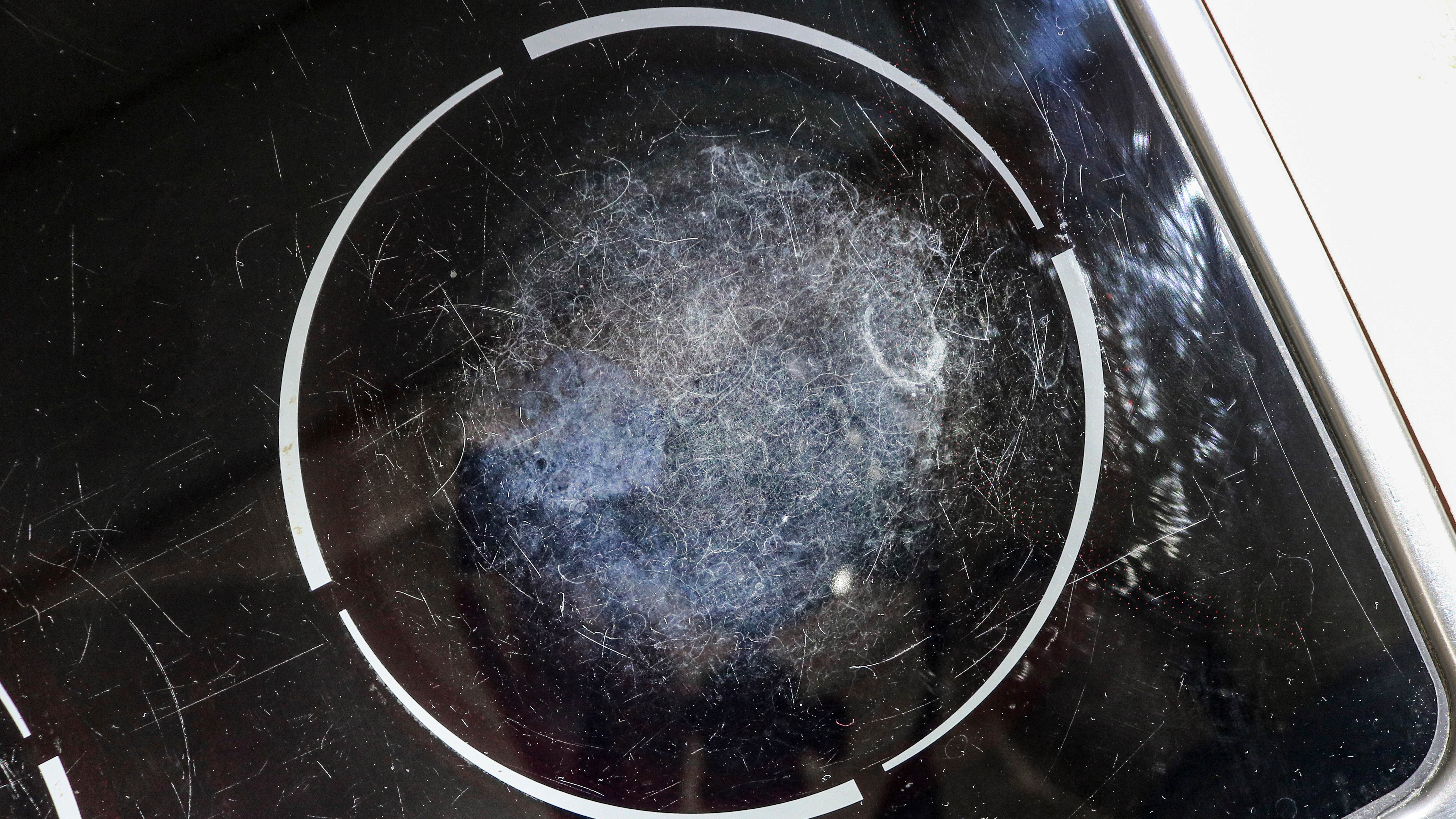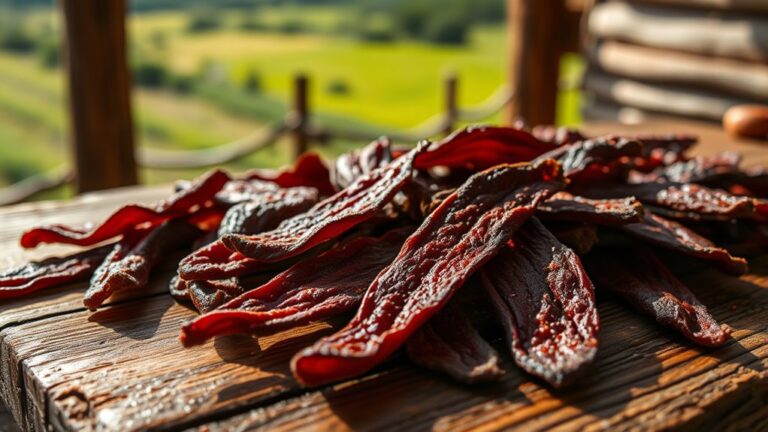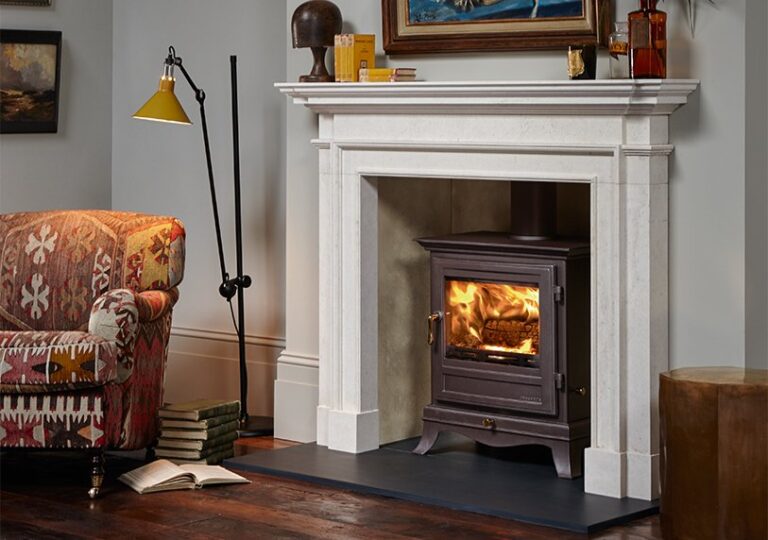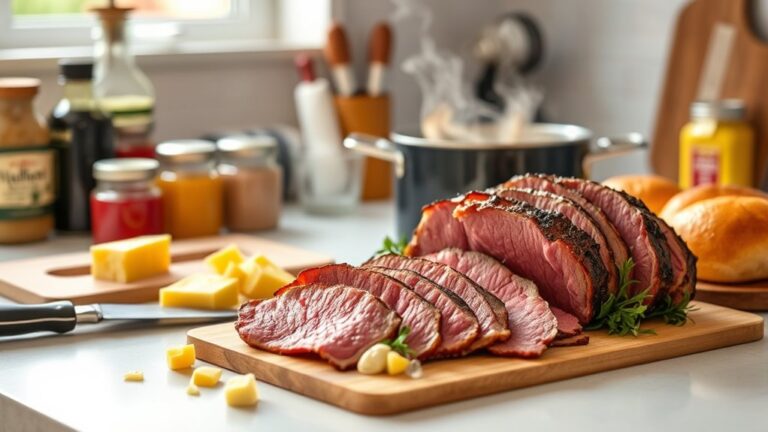Do Ceramic Glass Cooktops Scratch Easily? Uncover the Truth
You’ve invested in a sleek, modern kitchen, and your ceramic glass cooktop is the centerpiece. Its glossy surface gleams under the light, promising a world of culinary possibilities.
But as you prepare to whip up your favorite dish, a nagging question crosses your mind: “Do ceramic glass cooktops scratch easily? ” This concern is more common than you might think, and it’s one that deserves attention. You want to keep your kitchen looking pristine, and understanding the durability of your cooktop is key.
We’ll delve into the facts, debunk myths, and provide practical tips to help you protect your investment. Keep reading to discover how you can maintain your cooktop’s beauty and functionality for years to come.
Ceramic Glass Cooktops: An Overview
Ceramic glass cooktops are popular in modern kitchens. They offer a sleek design and efficient cooking. Their smooth surface adds elegance to any kitchen. Understanding their features helps in making informed choices.
What Is A Ceramic Glass Cooktop?
Ceramic glass cooktops are flat cooking surfaces. They are made from a blend of ceramic and glass. This combination provides strength and heat resistance. It creates a durable surface for cooking.
Benefits Of Ceramic Glass Cooktops
Ceramic glass cooktops heat quickly. They distribute heat evenly. This results in faster and more efficient cooking. Their flat surface is easy to clean. Spills can be wiped away without effort.
Design And Aesthetic Appeal
These cooktops have a modern look. Their sleek design fits any kitchen style. They enhance the overall appearance of your kitchen. The smooth surface adds a touch of luxury.
Potential Drawbacks
Ceramic glass cooktops can scratch easily. Sharp objects can cause damage. Using cookware with rough bottoms is not recommended. Proper maintenance is essential to avoid scratches.
Care And Maintenance Tips
Use cookware with smooth bottoms. Lift pots instead of sliding them. Clean spills immediately. Use non-abrasive cleaners to maintain the surface. Regular care keeps the cooktop looking new.
Material Composition
Ceramic glass cooktops are popular for their sleek design and efficiency. But many worry about scratches. Understanding the material composition helps in assessing their durability. Ceramic glass combines the best of ceramics and glass. This unique blend ensures a balance of strength and beauty. Dive deeper into the properties and durability of this material.
Ceramic Glass Properties
Ceramic glass is smooth and shiny. It enhances your kitchen’s look. The material withstands high temperatures. It transfers heat quickly and evenly. This ensures efficient cooking. The surface remains cool around the burners. This reduces the risk of burns. Its non-porous nature makes cleaning simple. A quick wipe removes most spills.
Durability And Strength
Ceramic glass is strong. It resists most scratches from regular use. Heavy pots can pose a risk. Sliding them can cause marks. Always lift heavy cookware. The surface can chip if something heavy falls on it. Use gentle cleaning tools. Avoid abrasive pads and harsh chemicals. With care, the cooktop remains pristine for years.
Common Causes Of Scratches
Ceramic glass cooktops offer a sleek, modern look to any kitchen. Yet, they are prone to scratches if not handled with care. Understanding common causes can help prevent damage and keep your cooktop looking new. Let’s explore some factors that contribute to scratches.
Everyday Cooking Habits
Frequent cooking leads to small accidents that scratch the surface. Spilled food or sauces can burn and harden. They might be difficult to remove without scratching. Regularly cleaning after cooking can reduce such risks.
Placing utensils directly on the cooktop can also cause scratches. Metal or sharp-edged tools are the worst offenders. Using a designated area for utensils can help. It’s a small change, but it makes a big difference.
Use Of Cookware
Not all cookware is suitable for ceramic glass cooktops. Pots with rough bottoms can easily scratch the surface. Always check the base of your cookware. Smooth, flat-bottomed pots and pans are ideal.
Dragging cookware across the cooktop is a common mistake. Lift pots and pans instead of sliding them. This simple action helps preserve the surface. It’s an easy habit to adopt with practice.
Using oversized pots can lead to scratches too. They trap heat and cause the surface to expand. This weakens the cooktop, making it more susceptible to scratches.

Credit: www.tomsguide.com
Preventive Measures
Ceramic glass cooktops need care to avoid scratches. Always use flat-bottomed pots and pans. Clean spills immediately with a soft cloth.
Ceramic glass cooktops are a sleek and modern addition to any kitchen. Their smooth surface not only enhances the aesthetic but also provides efficient cooking. However, they can be prone to scratches, affecting both appearance and functionality. Fortunately, there are preventive measures you can take to keep your cooktop looking pristine. By adopting proper cleaning techniques and choosing the right cookware, you can preserve the surface for years to come. Let’s dive into some practical tips that will help you maintain your cooktop’s shine.Proper Cleaning Techniques
When cleaning your ceramic glass cooktop, gentleness is key. Use a soft cloth or sponge rather than abrasive materials. Harsh scrubbers can leave scratches, making your cooktop look worn. Consider using a cleaner specifically designed for glass cooktops. These products are formulated to remove stains without damaging the surface. Remember to wipe spills immediately to prevent them from hardening and becoming difficult to clean. A personal tip is to keep a microfiber cloth handy in the kitchen. It’s perfect for daily maintenance. I’ve found it works wonders for keeping the cooktop dust-free. Plus, it minimizes the risk of scratches.Recommended Cookware Types
Choosing the right cookware can significantly reduce the risk of scratches on your cooktop. Opt for pots and pans with smooth, flat bottoms. Rough or textured surfaces can drag across the glass and leave marks. Avoid using cast iron or stoneware unless you’re confident in their smoothness. These materials can be heavy and abrasive, posing a threat to the delicate glass surface. Stainless steel and aluminum are safer options, as they are lighter and generally have smooth bases. Have you ever considered how cookware material affects your cooking experience? It’s not just about preventing scratches. The right pot can distribute heat evenly and enhance your culinary creations. Ultimately, maintaining a ceramic glass cooktop is about routine care and attention. By integrating proper cleaning techniques and selecting suitable cookware, you can keep your cooktop in top condition. What steps will you take today to protect your kitchen’s centerpiece?Maintenance Tips
Maintaining your ceramic glass cooktop not only ensures its longevity but also keeps it looking pristine. You might wonder if these elegant surfaces scratch easily, and the answer lies largely in how you care for them. With some simple maintenance tips, your cooktop can remain scratch-free and beautiful for years.
Regular Upkeep
Regular upkeep is your best defense against scratches. After cooking, let your cooktop cool down before cleaning it. Use a soft cloth or sponge and a gentle cleanser specifically designed for ceramic cooktops.
Avoid abrasive cleaners or scouring pads, as they can leave marks. Have you ever noticed tiny particles of food stuck on the surface? They can be pesky, but a little warm water and mild detergent can work wonders. Make it a habit to wipe down your cooktop after each use to prevent residue build-up.
Handling Minor Scratches
Minor scratches can happen despite your best efforts. Don’t worry; you can often handle them yourself. A ceramic cooktop cleaner or polish can minimize the appearance of light scratches.
Apply the cleaner with a soft cloth, using circular motions. Have you tried using baking soda and water paste? It’s a handy trick for shallow scratches. Apply the paste, let it sit, and gently buff it away.
Sometimes, scratches might seem inevitable, especially when you’re in a hurry. But taking a moment to be gentle with pots and pans can save you from future headaches. Have you considered adding protective pads to the bottom of your cookware? They provide an extra cushion, reducing the risk of scratches.
What’s your biggest challenge with maintaining your cooktop? Share your experience in the comments below, and let’s find solutions together!

Credit: www.youtube.com
Comparing With Other Cooktops
Ceramic glass cooktops are prone to scratches compared to other surfaces. Careful handling and using appropriate cookware can reduce damage. Regular cleaning with suitable products helps maintain their smooth finish.
When choosing a cooktop, understanding how different materials compare can help you make a more informed decision. Ceramic glass cooktops are popular for their sleek design and modern appeal. But how do they stack up against other types of cooktops? Let’s dive into the details to see how ceramic glass cooktops fare in comparison to traditional stovetops and their long-term performance.Ceramic Glass Vs. Traditional Stovetops
Ceramic glass cooktops offer a seamless, flat surface that many people find visually appealing. Unlike traditional stovetops with coils or burners, ceramic glass provides a smooth area that makes cleaning spills easier. However, this surface can be more prone to scratches if not handled with care. Traditional stovetops, particularly those with coil elements, might not look as modern but are often more forgiving when it comes to minor abrasions. If you have ever cooked on a ceramic glass cooktop, you might have noticed the immediate heat distribution it offers. This can be a major advantage over traditional stovetops, where uneven heating is a common complaint. Yet, this efficiency requires you to be cautious with cookware, as heavy or rough-bottomed pots can cause scratches.Long-term Performance
Considering long-term performance, ceramic glass cooktops require a bit more attention to maintain their pristine look. Using the right cleaning products and techniques can help reduce the risk of damage over time. Over the years, you might find that the surface can show signs of wear if pots are frequently dragged across it. In contrast, traditional stovetops, although less elegant, often withstand more rugged usage without showing significant signs of wear. Have you ever thought about how you treat your cooktop daily? Regularly lifting cookware instead of sliding it can make a big difference. It’s these small habits that can greatly influence the longevity of your ceramic glass cooktop. While both cooktops have their pros and cons, your cooking habits and maintenance routine can ultimately determine which is the right fit for your kitchen.Consumer Experiences
Ceramic glass cooktops offer a sleek look but can scratch if not handled carefully. Use gentle cleaners and avoid dragging pots to maintain their pristine condition. Proper care ensures longevity and a scratch-free surface.
When considering a ceramic glass cooktop, you might wonder how it stands up to daily use. Consumer experiences provide valuable insights into its durability and potential for scratches. Real-life stories and feedback can help you make an informed decision.User Testimonials
Many users rave about the sleek appearance and easy cleaning of ceramic glass cooktops. Take Sarah, for example, who cooks for her family daily. She shared that her cooktop maintained its shine after several months of use. Others echo this sentiment, noting their surfaces look brand new even after frequent cooking. Some users highlight how careful handling can prevent scratches. John, an avid home chef, places a soft cloth under heavy pots to avoid direct contact. This small precaution has kept his cooktop scratch-free for years.Common Complaints And Praise
Despite positive feedback, some consumers express concerns. Scratches can occur if you drag cookware across the surface. A few users mentioned that using cast iron skillets without caution led to minor marks. On the flip side, many praise the cooktop’s ability to handle a variety of cookware. They appreciate the even heating and modern look. The ease of cleaning is another common point of praise. As you weigh these experiences, think about your cooking habits. Do you frequently use heavy pots, or are you meticulous with your kitchen tools? Understanding your approach can help you decide if a ceramic glass cooktop is right for you.
Credit: www.youtube.com
Frequently Asked Questions
Do Ceramic Glass Cooktops Scratch Easily?
Ceramic glass cooktops are prone to scratches from abrasive materials or heavy cookware. Using the right cleaning tools and cookware can minimize damage. Avoid dragging pots and pans across the surface. Regular maintenance and careful handling are key to preserving their appearance.
How Can I Prevent Scratches On Cooktops?
To prevent scratches, use soft cloths and non-abrasive cleaners. Avoid using steel wool or harsh scrubbers. Place cookware gently and avoid sliding it. Use cookware with smooth bottoms to minimize scratching. Regularly clean the cooktop to remove debris that could cause scratches.
What Cookware Is Safe For Ceramic Glass Cooktops?
Use cookware with flat, smooth bottoms to avoid scratching ceramic glass cooktops. Stainless steel, aluminum, and copper are good choices. Avoid cast iron, ceramic, or stoneware, as they can be rough. Ensure the cookware is clean and dry before placing it on the cooktop.
Can Scratches Be Repaired On Ceramic Glass Cooktops?
Minor scratches on ceramic glass cooktops can sometimes be minimized with specialized cleaning creams or kits. Deep scratches may not be repairable and could affect performance. Regular cleaning and proper maintenance can help prevent scratches. Consult the manufacturer for recommended solutions and products.
Conclusion
Ceramic glass cooktops are stylish and modern. They can scratch though. Regular care keeps them looking new. Use gentle cleaners and soft cloths. Avoid dragging pots across the surface. Minor scratches may happen over time. This is normal. Treat your cooktop with care.
It will serve you well. Investing in protective pads helps. Keep your cooking space beautiful. Remember, gentle care goes a long way. Your cooktop will remain a kitchen star.





